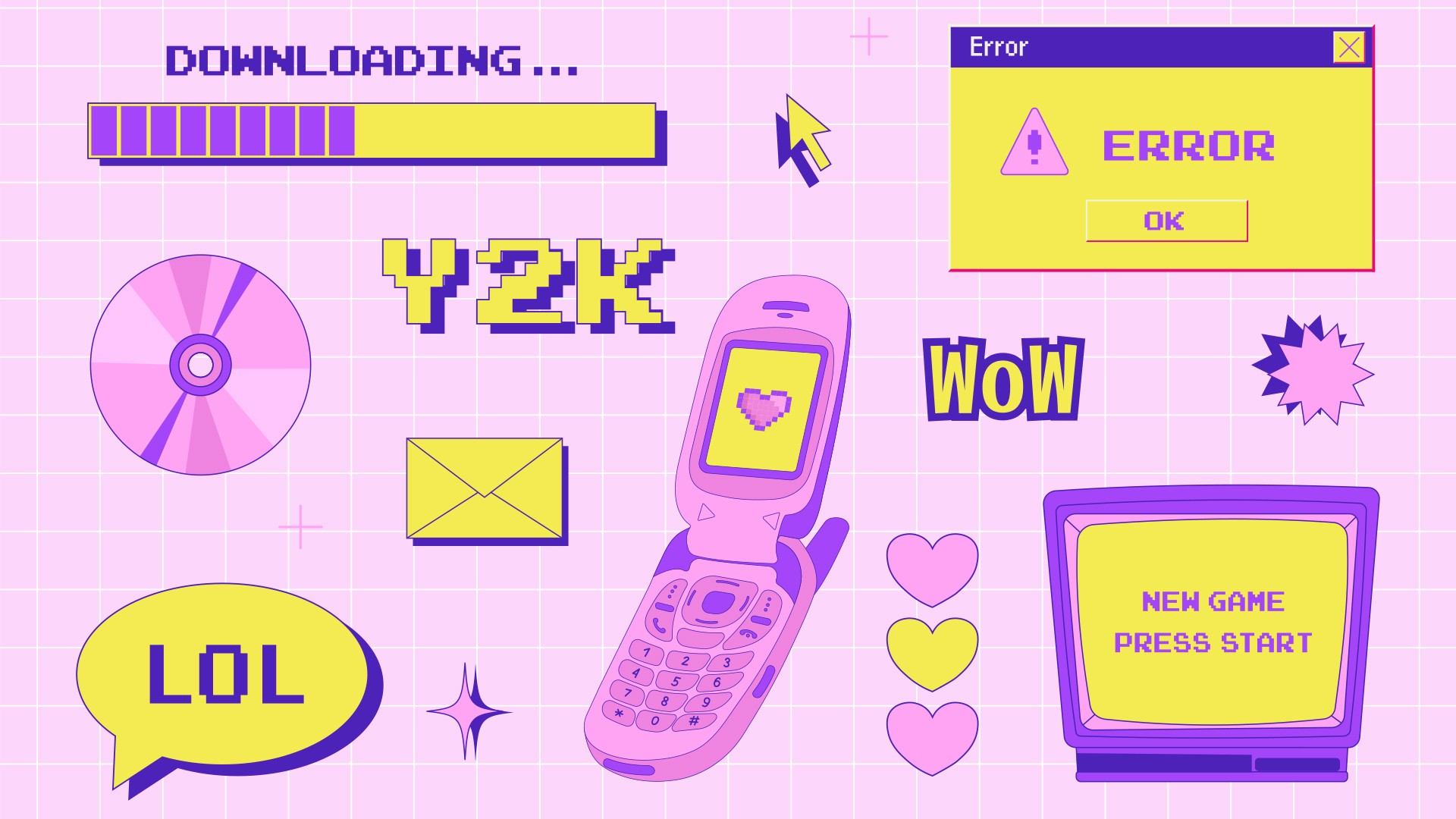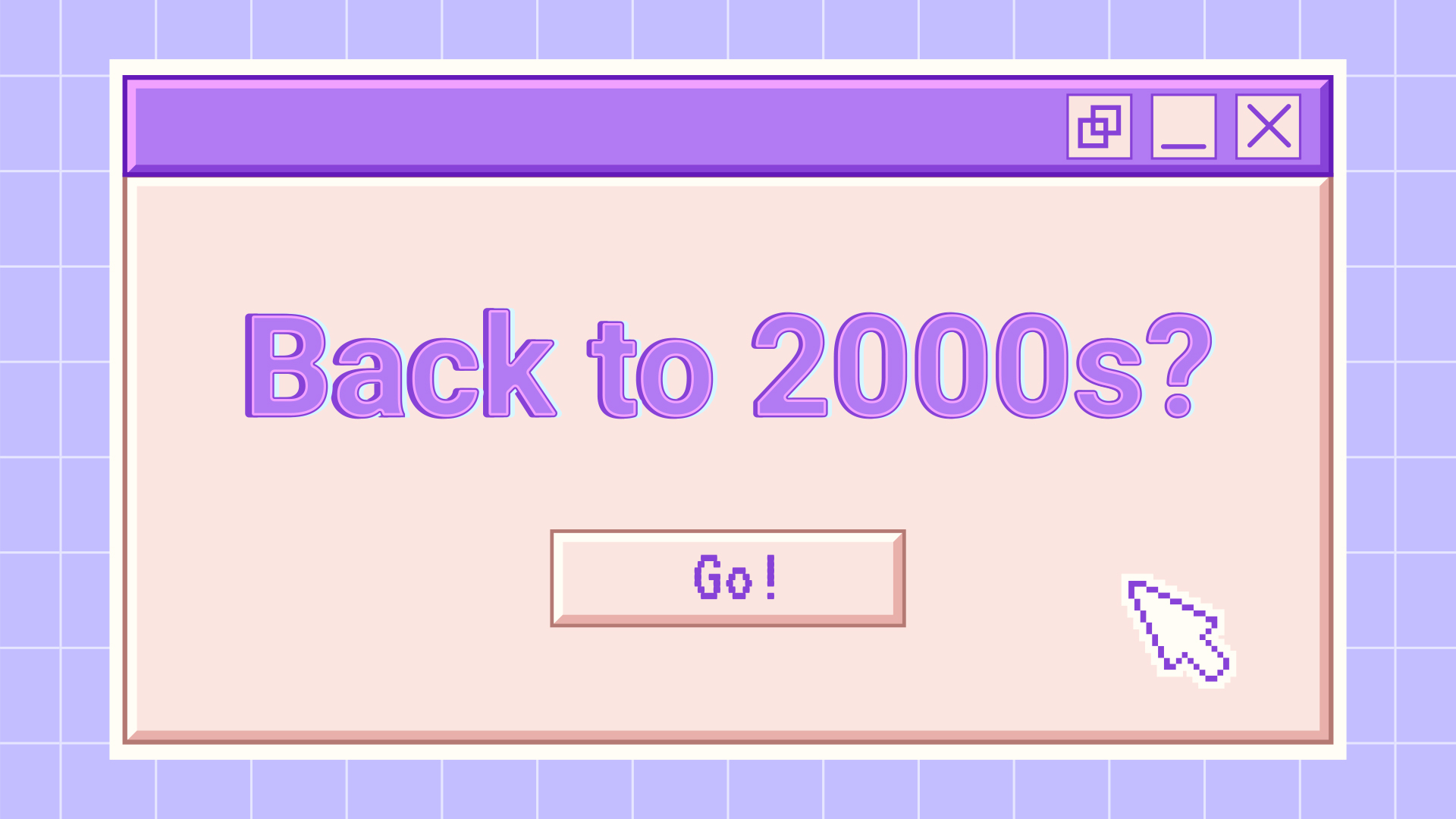
Last year, I asked my tween sister what she wanted for Christmas, and I was shocked (and a little elated) when she told me that she wanted a Nintendo Wii. Breezing through adolescence in the early 2000s, the Wii was a huge part of my younger years, so when she unwrapped the coveted console on Christmas day, it felt almost like passing the baton – blessing her with a little piece of my Y2K childhood.
Increasingly I've seen artefacts from my youth rediscovered by Gen Z younglings, who seem to have developed a sort of ironic infantalisation of Y2K tech. From iPods being marketed as 'retro' to wired headphones becoming a rejection of modernity, the resurgence of Y2K trends has been a confusing and sobering phenomenon for me. But where has this nostalgia come from, and why are Gen Z nostalgic for a decade not long passed? (Check out our collection of the best retro game consoles for even more nostalgia).
Urban Outfitters, after years of selling nostalgia to teenagers who don’t actually experience nostalgia for culture before their time, is now selling iPods for $350. pic.twitter.com/val0WifagROctober 22, 2023
Earlier this year, retailer Urban Outfitters released a line of refurbished first-gen iPod minis describing them as "a genuine piece of vintage retro tech". While the shudder-worthy description has definitely made me feel like a dinosaur, it also points to a more pressing issue about the marketing of Y2K tech – not only is it well and truly back, but now it's 'cool' (again).
Nowadays, wearing wired headphones is a status symbol, a mark that you're humble and above the societal expectation to submit to the wireless overlords. A CD Walkman shows that you prefer to immersive yourself in an album – none of that streaming service nonsense. And if you want to get into retro gaming, I've heard Wii sports and Mario Kart are all the rage (again).
@_tavo777 Aqui andamos
♬ original sound - a
This trend is as much an aesthetic as it is a genuine appreciation for old tech. A scroll through TikTok reveals a host of pioneering influencers, regressing back to Y2K aesthetics as a rejection of modernity. iPod shuffles are used as hair accessories and digital cameras capture a raw grittiness that sleek smartphones just can't recreate (it's nothing to do with the inferior camera quality, I'm sure).
Even with modern smartphones like the Galaxy Flip series, there's an obvious demand for commercial brands to hop on the Y2K bandwagon. Whether it's the physical novelty or the nostalgia, it's inevitable that some trends of the past will come back to haunt us, but for those of us who grew up in the 2000s, it can be hard to understand the recent romanticisation.

As with all trends, everything is cyclical and trend cycles seem to be evolving faster with each year. While previous decades certainly had subcultures, the internet has created a network for almost every community, and as a result, our modern age is a culture of everything and nothing. It's the separateness of Y2K tech that's a joy for the overstimulated Zoomer. How blissful it is to imagine a phone dedicated to texting friends, an iPod just for music, and a DVD player limited to films curated from your personal collection.
While millennials witnessed the advancement of technology, Gen Z grew up with a smartphone in hand, so the desire to look back to technology manifests as a search for authenticity. For Gen Z, the early 2000s marked the beginning of modern technology, a time of collective excitement for what's to come. In an era where we're burdened with too many choices, 2000s tech feels like the calm before the storm – the comforting final stop before we enter the information overload of today's online climate.

For more retro reminiscing, check out Spotify's Snake game, or take a look at the 90s AI yearbook trend that took over TikTok.







